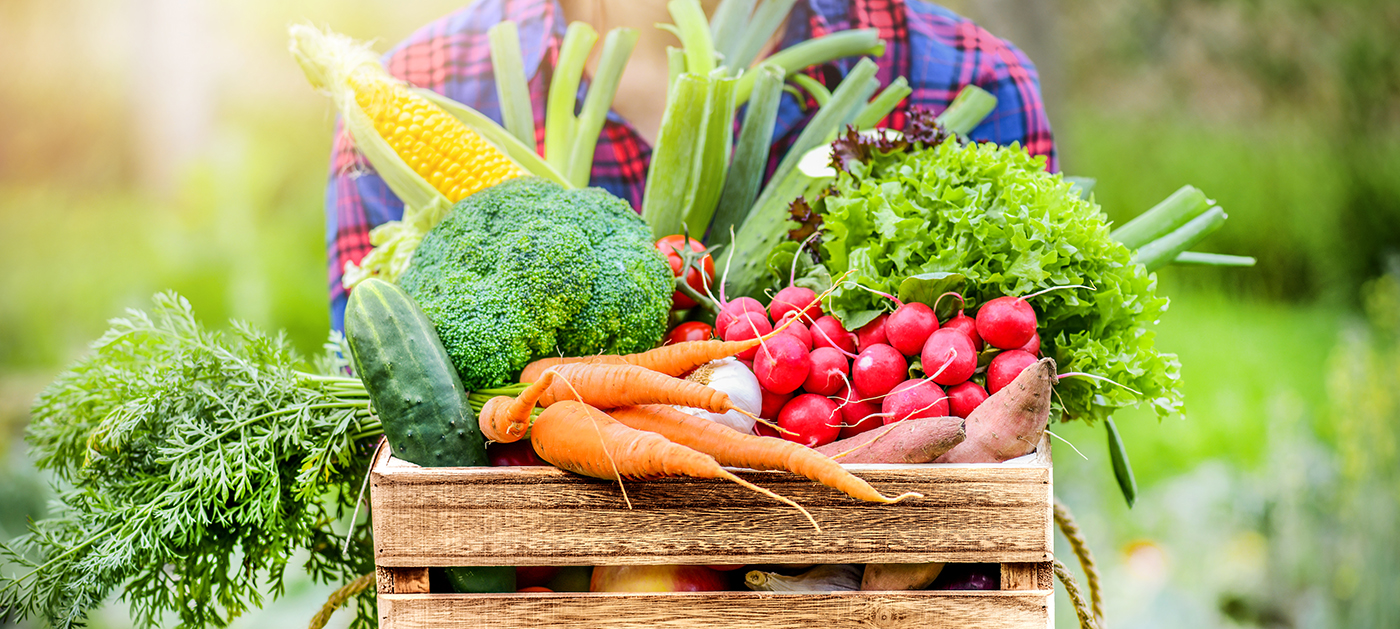Cornwall Manor is a continuing care retirement community, located in Central Pennsylvania (Lebanon County), that offers residential living in apartments and homes for individuals age 60 and above and a full range of amenities and services as well as onsite health care. We have been offering diversified and high-quality housing, healthcare and related services since 1949 for individuals to achieve a retirement and aging lifestyle they find fulfilling.
The philosophy of health care at Cornwall Manor is based on the principle that each resident is entitled to enjoy and maintain the highest possible level of health, dignity, independence and activity. We believe it is important to nurture the body, mind and spirit.
Cornwall Manor is the first retirement community to partner with the Rodale Institute, a nonprofit organization dedicated to growing the regenerative organic movement through rigorous research, farmer training and consumer education. Widely recognized as a founder of the modern organic movement in the United States, the Rodale Institute has been the global leader in regenerative organic agriculture for over 70 years.
Together, Cornwall Manor and the Rodale Institute have collaborated to create Trailside Organic Farm, a two-acre vegetable farm utilizing organic practices located at Cornwall Manor.
Cornwall Manor will use produce grown on the farm to be served in all campus dining areas. Utilizing Rodale Institute’s expertise in organic growing methods, the Trailside Organic Farm, will provide residents with healthy, hyperlocal food choices and a thriving natural environment that supports their health, environment and overall well-being. This partnership will also offer educational opportunities for residents to learn about the benefits of organic as well as offer hands-on opportunities to get involved at the Trailside Organic Farm.
What is Organic Farming?
Many restaurants and grocers acquire their ingredients from commercial sources that may include artificial fertilizers or synthetic pesticides in their farming process. In response to these contentious farming practices, the organic farming movement originated in the 1940s to provide people with clean produce they could trust. In general, organic farming focuses on growing produce without artificial fertilizers or synthetic pesticides and following environmental practices that preserve natural resources.
Having an onsite organic farm at a continuing care retirement community (CCRC) like Cornwall Manor allows organic produce to be grown on campus, which is then used directly in the food served in all dining rooms. The onsite, organic farm also helps keep costs down by eliminating the need to purchase ingredients from a commercial supplier.
Along with providing and growing our own organic produce, growing our own produce enables us to meet our own demand. Trailside Organic Farm is sized to grow and produce enough fresh organic vegetables to keep our kitchens stocked with healthy ingredients for a variety of menu options. Any excess produce will be offered for sale to residents and team members interested in utilizing organic produce at home.
What is the difference between organic food and farm-to-table?
The term “organic” refers to the way agricultural products are grown and processed. While the regulations vary from country to country, in the U.S., organic crops must be grown without the use of synthetic herbicides, pesticides, and fertilizers, or bio-engineered genes (GMOs).
Farm-to-table is not a new concept; in fact it has been around for many, many years. Farmers Markets have long been an important part of the farm-to-table concept. Essentially farm-to-table means harnessing the produce of locally grown farmers; to put it simply, buying local.
Both farm-to-table and organic food is healthier than processed and packaged foods. First of all, it’s all natural and many of the ingredients and products are locally grown or raised. However, fresh produce from a local farmer can still utilized certain pesticides. Certified organic produce must meet more rigorous standards – produce is grown and processed according to federal guidelines addressing, among many factors, soil quality, pest and weed control, and use of additives. Organic producers rely on natural substances and physical, mechanical, or biologically based farming methods to the fullest extent possible.
Benefits of Eating Organic Food
How your food is grown or raised can have a major impact on your mental and emotional health as well as the environment. Organic foods often have more beneficial nutrients, such as antioxidants, than their conventionally-grown counterparts and people with allergies to foods, chemicals, or preservatives may find their symptoms lessen or go away when they eat only organic foods.
- Organic produce contains fewer pesticides. Chemicals such as synthetic fungicides, herbicides, and insecticides are widely used in conventional agriculture and residues remain on (and in) the food we eat.
- Organic food is often fresher because it doesn’t contain preservatives that make it last longer. Organic produce is sometimes (but not always, so watch where it is from) produced on smaller farms nearer to where it is sold.
- Organic farming tends to be better for the environment. Organic farming practices may reduce pollution, conserve water, reduce soil erosion, increase soil fertility, and use less energy. Farming without synthetic pesticides is also better for nearby birds and animals as well as people who live close to farms.
- Organic food is GMO-free. Genetically Modified Organisms (GMOs) or genetically engineered (GE) foods are plants whose DNA has been altered in ways that cannot occur in nature or in traditional crossbreeding, most commonly in order to be resistant to pesticides or produce an insecticide.
How Can Seniors Benefit from Eating Organic?
As we age, our sense of taste and smell can change. Factors that may impact sensory changes include some medications, cancer treatments, certain health conditions and smoking. You might notice your smell and taste senses have dulled, and that can lead to a lack of appetite. As a result, you might find yourself putting salt and sugar on your food to enhance the flavor — but that can have health consequences.
The benefits of eating organic for seniors are vast. Our body’s ability to absorb nutrients decreases over time, but organic diets ensure you get the maximum amount of nutrition out of what you eat. Getting more nutrients is key because certain vitamins and nutrients become especially important as we age. Antioxidants and nutrients are vital to fending off cognitive decline and increasing energy levels.
Adding organic vegetables to your diet means you can get more nutrients from the food you eat, which will make you feel better. In addition to medical benefits, organic foods have many other advantages for older adults that can improve their quality of life. Fresher tasting and more flavorful foods can increase your excitement and interest in eating.
Even if you feel that your sense of taste and smell has dulled, having various colors and textures in your meals can make them more enjoyable. Adding fresh herbs and spices enhances the flavor of dishes in a healthy way, and fresh produce is excellent for making smoothies and juices. If you prefer to graze throughout the day instead of eating scheduled meals, fruits and veggies make for a quick and healthy snack!
Organic Senior Living
Food is an essential aspect of senior living and can foster a sense of community. By using organic ingredients, senior living chefs can customize menus to the needs of their residents and add exciting options they may not have been able to before. Variety and flexibility are essential to meet the unique needs of every resident in the community.
Serving organic produce in senior living facilities also results in healthier and happier residents. By increasing the quality and nutritional value of the food, residents can enjoy their meals and use their higher energy levels to pursue the activities they love.
Opportunities for Cornwall Manor Residents
The true spirit of the organic farming movement is to help people feel better about the food they eat. We embody that spirit with our Trailside Organic Farm. Located on a two-acre plot of land on Cornwall Manor’s Wood Campus, our vegetable farm using organic practices will provide residents with healthy, local produce and a beautiful natural environment to explore.
The fresh food from the Trailside Organic Farm will be featured in our custom menu options, and excess produce will even be available for purchase to our residents. What’s better than getting to indulge in food that was grown steps from your door?
Trailside Organic Farm Updates
Ian Frederick, Cornwall Manor’s Farm Manager, provides monthly updates of what’s happening at the farm. You can follow them here.
In 2019, Ian received a Bachelor’s degree in Sustainability from Messiah College. He prioritizes landscaping practices that provide ecological benefits as well as aesthetic value. Ian directs special attention toward integrating pollinator habitats on Rodale’s property. Prior to coming to Cornwall Manor, Ian was the Farm Operations Field Technician at Rodale Institute. In his former position at Rodale, Ian helped with maintaining and designing the landscape. Ian has a work background in landscaping and ornamental gardening.
Contact Us Today!
Contact us today at 717-274-8092/800-222-2476, marketing@cornwallmanor.org. We look forward to speaking with you and scheduling your visit (and a tour of Trailside Organic Farm!)








